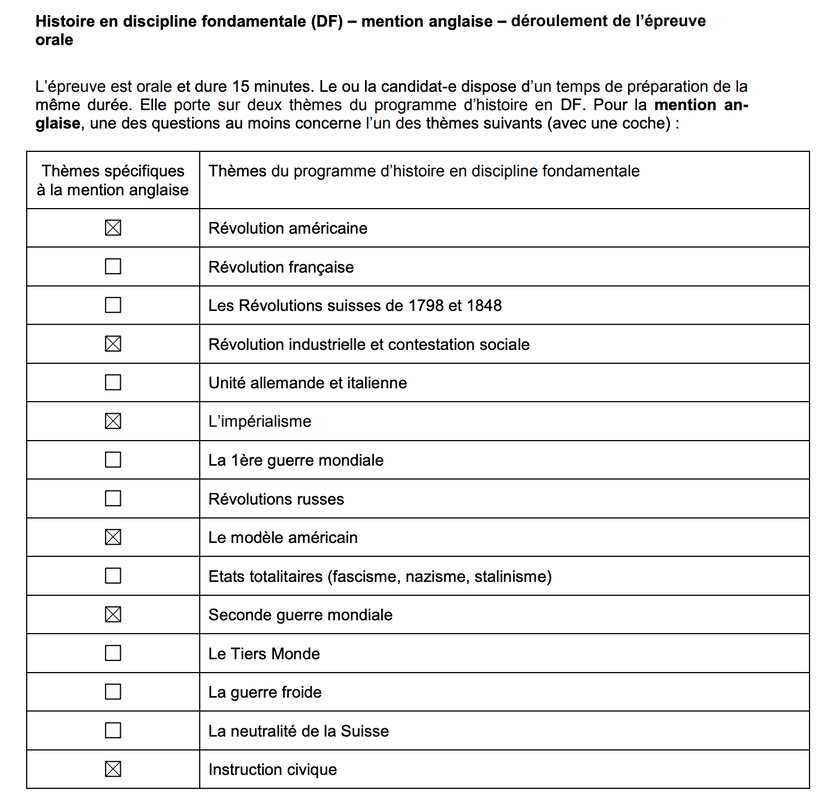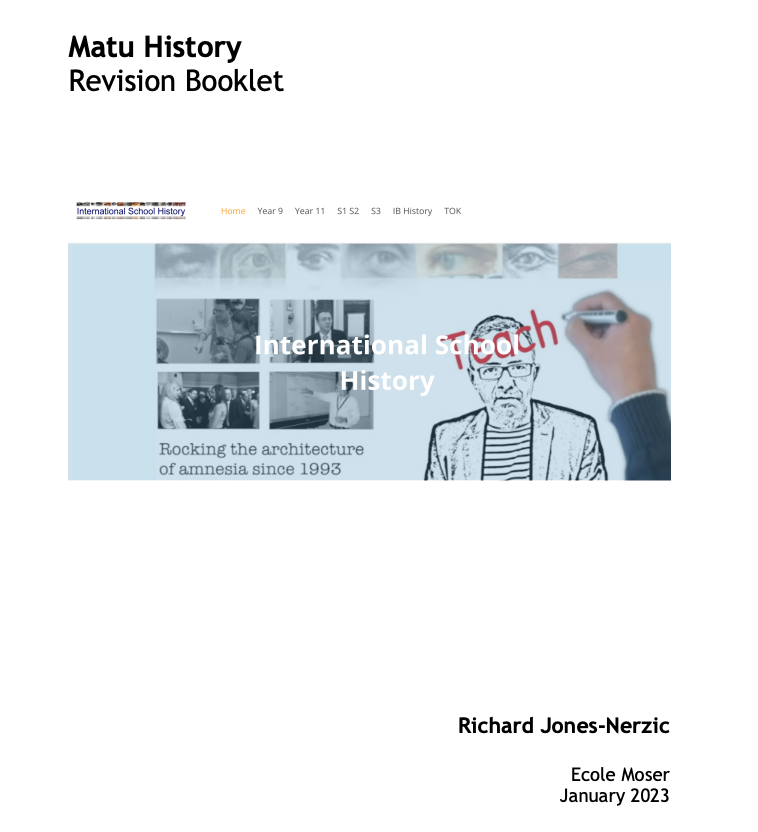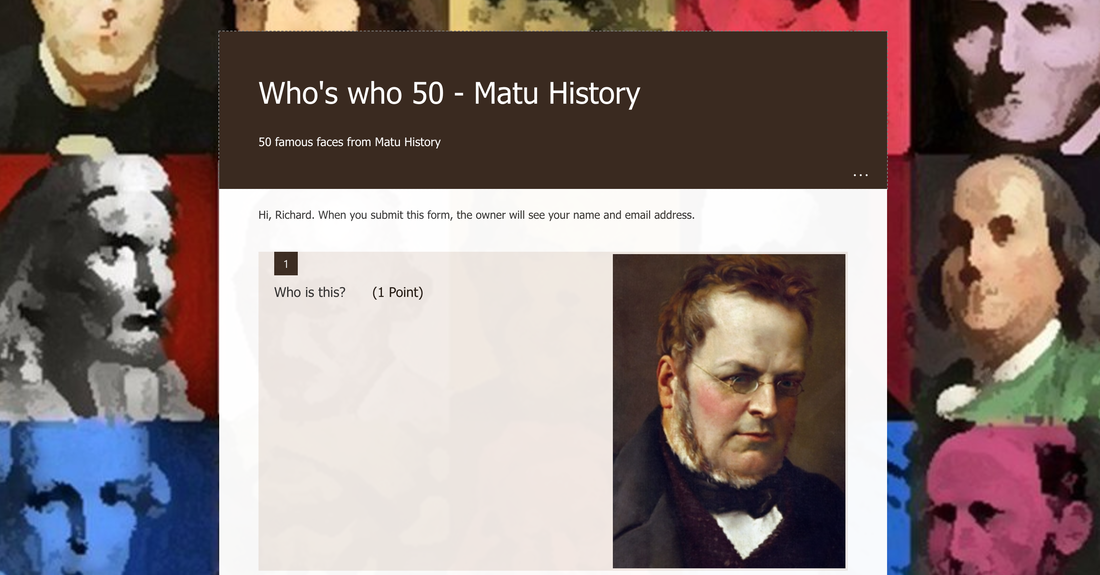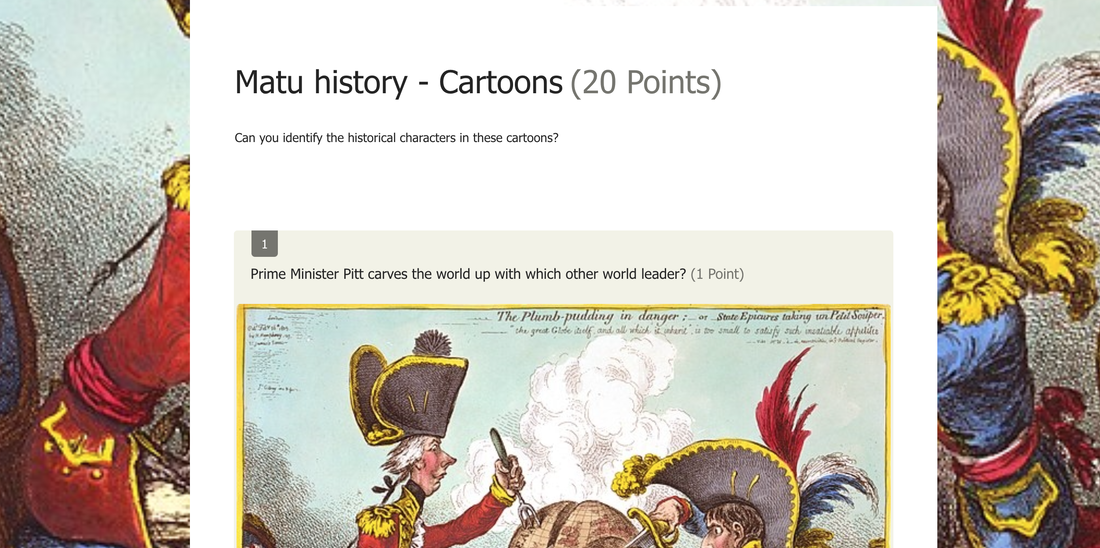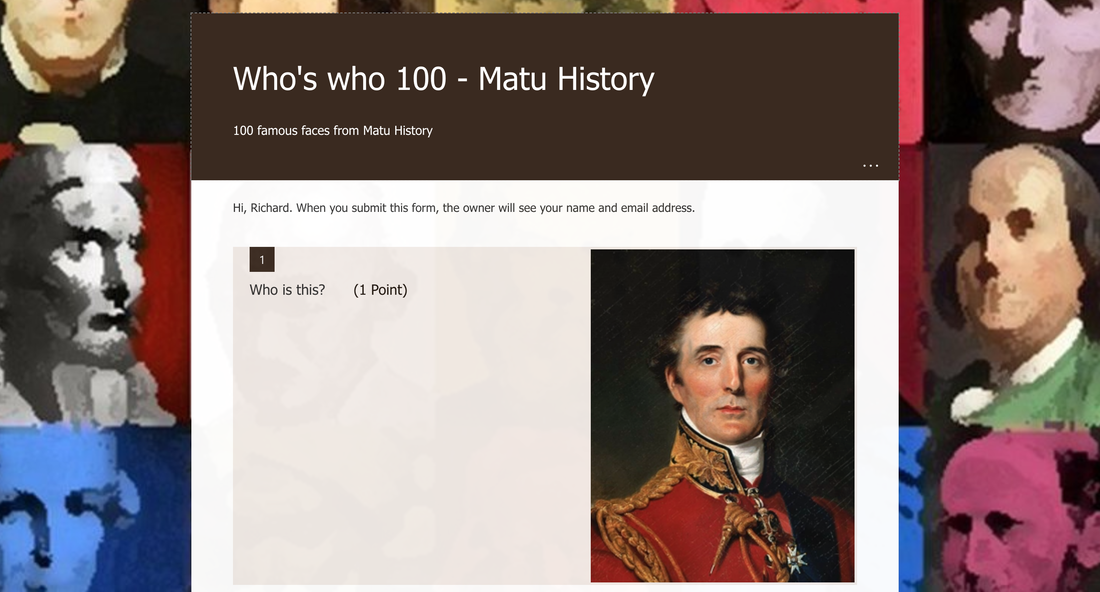|
Guidelines
To the left you can see the official guidelines produced for students sitting the history oral exam in English. As you know, you will be given two themes to consider in the oral. Importantly, one of those themes will definitely be focused on one of the six themes that are marked by a cross. I have included the (vague) outlines from the official syllabus at the start of each of my 13 Matu units of study. You can download and view the official syllabus here. As in 11e, at the end of every unit there will be a test and an evaluation of the general quality of the work you have completed in that unit. On occasion, individual assignments will also be graded, but you will not know about this in advance. We will also be introducing the assessment format favoured by the IB for all students, whether you choose to do the Double Diploma or not. The skills of essay writing and source analysis are critically important but neglected by the Matu. |
S2 end of year exam - Oral
You need to be able to speak for approximately five minutes on each of the following topics. The revision booklet opposite can be downloaded and contains summaries of all the units. |
S1 |
S2 |
Explain how Switzerland was transformed by the French invasion of 1798. To what extent were France and Europe changed under the leadership of Napoleon? |
Evaluate the role of imperialism as a cause of the First World War. Explain why the First World War is considered to be a total war. |
Why was Britain the first country to have an industrial revolution? Explain how Britain was transformed by the industrial revolution. |
Why was the Tsar able to survive in 1905 but not in February 1917? Why were the Bolsheviks able to come to power in 1917 and hold on to power in the years which followed? |
Why did Italy finally become unified by 1870? Explain the role of Bismarck and Prussia in unification of Germany. |
Explain how the New Deal addressed the problems caused by the Great Depression. Compare and contrast the main features of the first and second industrial revolutions. |
Compare and contrast the experience of imperialism in two countries you have studied in two different regions. To what extent were economic factors the main cause of the 'New Imperialism' in the late 19th century? |
Explain how Mussolini came to power and consolidated his rule between 1922 and 1925. To what extent were Mussolini's domestic and foreign policies inspired by fascist ideology? |
Book an oral practice
Come prepared to talk through one of the questions above or allow us to choose for you.
Come prepared to talk through one of the questions above or allow us to choose for you.
|
|
|
Matu Revision
One of the difficulties students face in the Matu exams is in identifying the historical characters in the sources they have to analyse. Below are challenges on three levels.
Especially for Ben who asked for it... below is a meta quiz including all the content of the quizzes set in S1 and S2.

